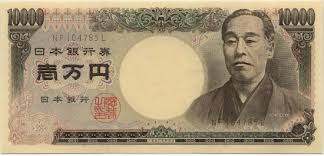By Andy Sharp and Mayumi Otsuma - Sep 14, 2012 9:53 AM GMT+0400

Japan lowered the assessment for its economy, the first consecutive downgrade since the waning of the global credit crunch in 2009, fueling concern the world’s third-largest economy will contract this quarter.
Japan’s “recovery appears to be pausing due to deceleration of the world economy,” the Cabinet Office said in a monthly report released in Tokyo today. “Private consumption is almost flat,” while industrial production and exports are weakening, it said.
With the nation’s rebound from last year’s tsunami-induced contraction waning, Finance Minister Jun Azumi today signaled Japan is prepared to counter gains in the yen that would further curtail exports, and is open to fiscal stimulus. The downgrade may also escalate pressure on the Bank of Japan next week to follow its U.S. counterpart and expand quantitative easing.
“It’s highly likely that the Japanese economy will contract in the third quarter and its growth will probably stagnate in the fourth quarter,” said Hiroaki Muto, a senior economist at Sumitomo Mitsui Asset Management in Tokyo. “Policy stimulus, including an extra budget, will be the only engine to fuel Japan’s growth for the time being.”
Stocks Rally
Japan’s stocks rallied today even after the monthly assessment, joining a global advance in equities following the Federal Reserve’s decision to expand its holdings of long-term securities. The Nikkei 225 (NKY) Stock Average was up 1.8 percent as of 2:46 p.m. in Tokyo, with the MSCI Asia Pacific Index gaining 2.4 percent.
The yen was little changed at 77.61 per dollar, about 3 percent from the postwar high reached in October that spurred Japanese authorities to intervene with a record amount of foreign-exchange sales.
“It’s obvious that the recent one-sided advance in the yen doesn’t reflect the state of the Japanese economy and we can’t overlook such moves,” Azumi told reporters today in Tokyo. We “will take decisive action if needed.”
The government is ready to “take necessary measures” to stimulate the economy, although the size and timing of any extra budget had not been decided, he added.
In Asia
Singaporean retail sales in July fell 2.9 percent on year, a second month of declines.
Euro area inflation in August was 2.6% on year, according to the median estimate of economists in a survey. The European statistics bureau Eurostat will also report employment in the Euro area for the second quarter.
U.S. CPI is forecast to have risen 0.6 percent in August from the previous month, according to 85 economists surveyed by Bloomberg. Retail sales probably rose for the second month in August as consumers overcame a lack of jobs and stagnant wages, economists said before a report today.
The preliminary reading of the Thomson Reuters/University of Michigan confidence indexprobably fell in September, a separate survey showed.
Japan’s gross domestic product grew an annualized 0.7 percent in the second quarter after a 5.3 percent expansion in the first three months. Today’s report adds weight to forecasts by BNP Paribas SA and JPMorgan Securities Japan Co. that the economy may shrink this quarter.
Demand remains for work to reconstruct areas devastated in the disasters last year, and Japan should pick up as the global economy improves, the Cabinet Office said. The government cut its view on personal consumption and industrial production for a second month, and lowered its assessment of capital spending and corporate earnings.
Falling Sales
Japan’s retail sales fell more than economists forecast in July and industrial productionunexpectedly slumped as government subsidies for car purchases wind down.
Gridlock in parliament may limit fiscal stimulus just as Japan’s expansion is restrained by the weakness in global demand and an appreciating currency. Immediately after the Fed’s decision to expand holdings of long-term securities, the yen rose today to its highest level against the dollar since Feb. 14, when the Bank of Japan (8301) unexpectedly expanded its asset- purchase program.
Japan’s central bank is due to meet Sept. 18 and 19 to decide whether the economy needs more monetary support.
While maintaining its appraisal of the global economy, the government said today that the “further slowing down of overseas economies” is a downside risk to Japan.
The euro area’s economy contracted in the second quarter as consumers cut spending and corporate investment slumped. China’s industrial output in August grew at the slowest pace in three years, and imports to the world’s second-biggest economy unexpectedly fell last month.
To contact the reporters on this story: Andy Sharp in Tokyo at asharp5@bloomberg.net;
Mayumi Otsuma in Tokyo at motsuma@bloomberg.net
Mayumi Otsuma in Tokyo at motsuma@bloomberg.net
To contact the editor responsible for this story: Paul Panckhurst at ppanckhurst@bloomberg.net